|
After a wet summer, the declaration of catastrophic fire danger across parts of Victoria on Wednesday seemed to come out of the blue. After all, February is almost over. Hasn’t the worst of the fire risk passed?
As University of Tasmania fire expert David Bowman writes today, climate change means we must always expect the unexpected. “In a fire-prone continent such as Australia, we can never relax in a warming world,” Bowman writes. “We must be in a constant, heightened state of preparedness.”
You may also have noticed unusually intense weather events across Australia of late – not just fires but storms, floods and heatwaves. Today, more than 30 of Australia’s leading climate scientists have released a report analysing ten major weather events in 2023.
We don’t yet know the extent to which climate change contributed to these events. But we can expect more of the same disruptions – and worse – as Earth keeps getting hotter.
|

|
Nicole Hasham
Energy + Environment Editor
|
|
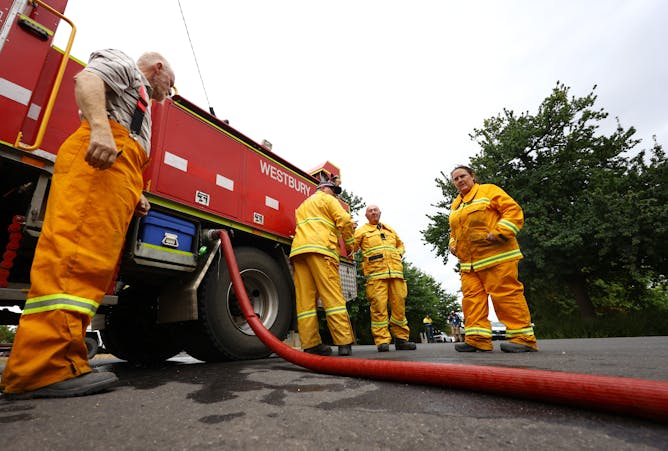
David Bowman, University of Tasmania
Many Australians probably thought the worst of the bushfire season was over. But climate change is bringing not just more frequent and severe fires, but longer fire seasons.
|
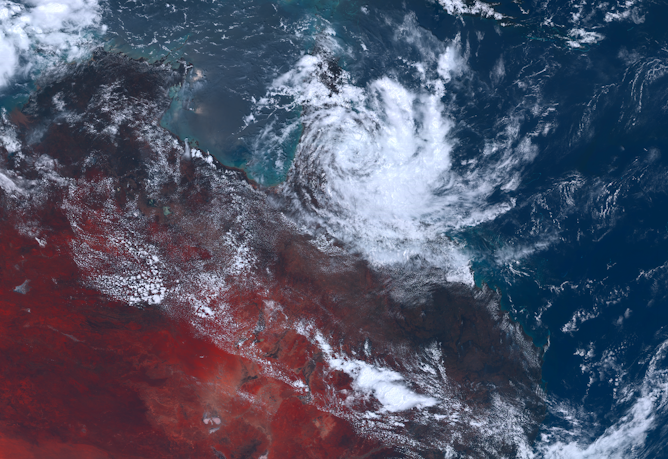
Laure Poncet, UNSW Sydney; Andrew King, The University of Melbourne
Last year was the hottest in recorded history. That heat led to a range of unusually intense weather events across Australia.
|

Darius von Guttner Sporzynski, Australian Catholic University
Pope Gregory XIII was patron of Rome’s renaissance, and a legal luminary whose influence transcends the ages.
|
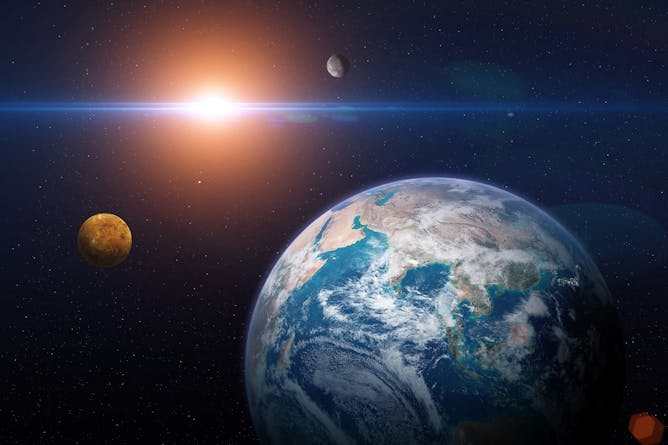
Emily O'Hara, Auckland University of Technology
2024 is a leap year, when the shortest month mops up a bit of leftover time. But the extra day also tells us about space – and our place in it.
|

Greg Treadwell, Auckland University of Technology
It’s been 35 years since Aotearoa New Zealand’s first private network brought real competition in the television news market. Yesterday Warner Bros Discovery announced an end to all that.
|

Saman Khalesi, CQUniversity Australia; Anna Balzer, CQUniversity Australia; Charlotte Gupta, CQUniversity Australia; Chris Irwin, Griffith University; Grace Vincent, CQUniversity Australia
All carbs need to be broken down by our digestive enzymes to be absorbed. Digestion of complex carbs is a much slower process than simple carbs, leading to a more gradual blood sugar increase.
|

Joanne Orlando, Western Sydney University
Is it reasonable to occasionally inspect a 13- or 14-year-old’s device, or does this undermine a new sense of privacy at this stage?
|
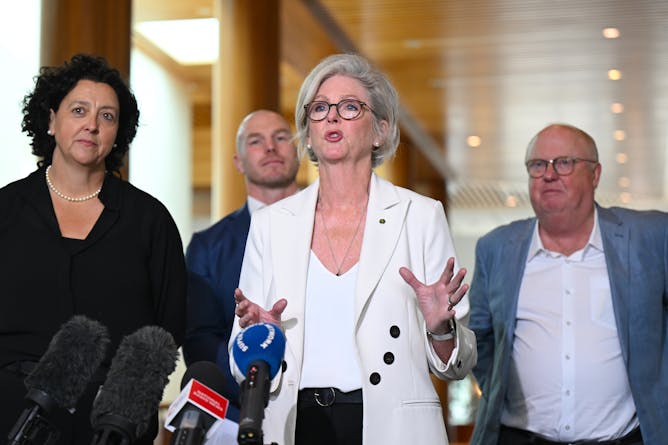
Yee-Fui Ng, Monash University
The private member’s bill is unlikely to get through, but it raises important points about the scourge of pork-barrelling in Australian politics.
|
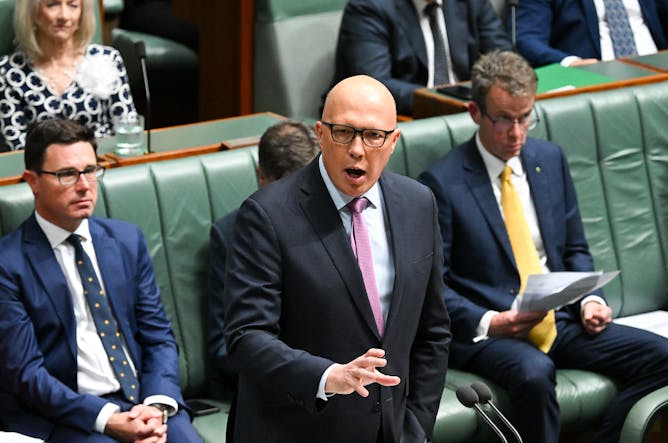
John Quiggin, The University of Queensland
Small modular reactors are popular among conservative politicians and supposedly the Australian public. But they’re nowhere near ready to power Australia in time to replace coal-powered stations.
|
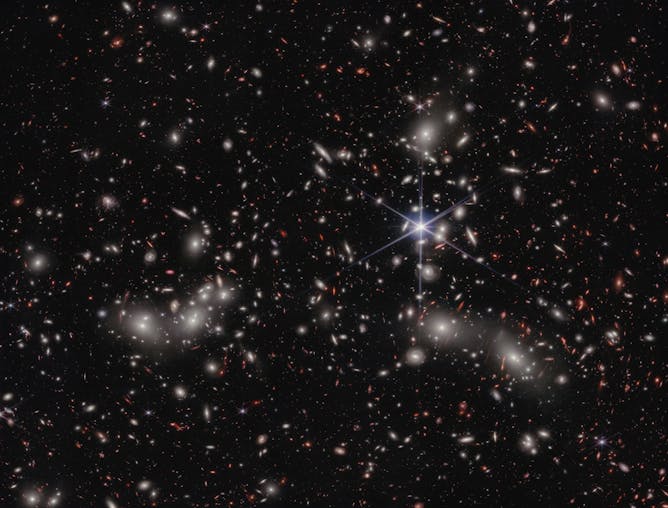
Themiya Nanayakkara, Swinburne University of Technology
With the help of a magnifying glass 4 million lightyears wide, astronomers may have solved the riddle of what burned away the hydrogen fog that pervaded the early universe.
|
Politics + Society
|
-
Michelle Peterie, University of Sydney; Alex Broom, University of Sydney
There are many social assumptions about how to best ‘get through’ grief. We interview 95 people about their experiences of loss and found we need to rethink what grief looks and feels like.
-
Alexander Gillespie, University of Waikato
International pressure on Israel to halt its onslaught in Gaza is mounting. New Zealand has so far chosen to stay on the sidelines, despite allies taking more decisive stands.
|
|
Health + Medicine
|
-
Claire Badenhorst, Massey University; Stacy T. Sims, University of Waikato
Education needs to address the big gaps in the knowledge around the menstrual cycles and the impact menstruation has on a wide range of health outcomes.
-
Luke Smillie, The University of Melbourne
The toll of Russia’s invasion of Ukraine on people’s wellbeing was felt worldwide. The effects were temporary for most. But those high on certain psychological traits struggled for longer.
|
|
Environment + Energy
|
-
Andrew Dowdy, The University of Melbourne; Andrew Brown, The University of Melbourne; Andrew King, The University of Melbourne; Claire Vincent, The University of Melbourne; Michael Brear, The University of Melbourne; Pierluigi Mancarella, The University of Melbourne; Todd Lane, The University of Melbourne
Extreme winds from thunderstorms have downed transmission towers from Victoria to Western Australia in recent years. What’s going on?
|
|
Arts + Culture
|
-
Blythe Worthy, University of Sydney
Director Justine Triet channels a forensic evisceration of the patriarchy against the backdrop of the French legal system.
-
Ian Maxwell, University of Sydney
Louis Nowra is one of the most significant Australian playwrights of the past 40 years. Griffith Theatre Company is staging a trilogy of his work.
|
|
Books + Ideas
|
-
Christopher Pollard, Deakin University
Throughout If We Burn, Vincent Bevins shows that “movements that cannot speak for themselves will be spoken for”.
-
Sue Kossew, Monash University
Gail Jones has written a richly evocative novel that warrants attention, both for its fascinating subject-matter and for its outstanding writerly qualities.
|
|
| |
|
|
|
Aeon Media Group Ltd
Melbourne VIC, Australia
•
Full Time
|

|
|
The Conversation AU
Melbourne VIC, Australia
•
Full Time
|

|
|
|
|
| |
| |

|
| |
| |
| |
Featured Events, Courses & Podcasts
|
View all
|
|
1 January 2023 - 7 October 2026
•
|

|
1 February 2023 - 25 November 2029
•
|

|
29 February - 1 March 2024
•
Perth
|

|
|
|

|
|
|
|
| |
| |
| |
| |
| |
|
|